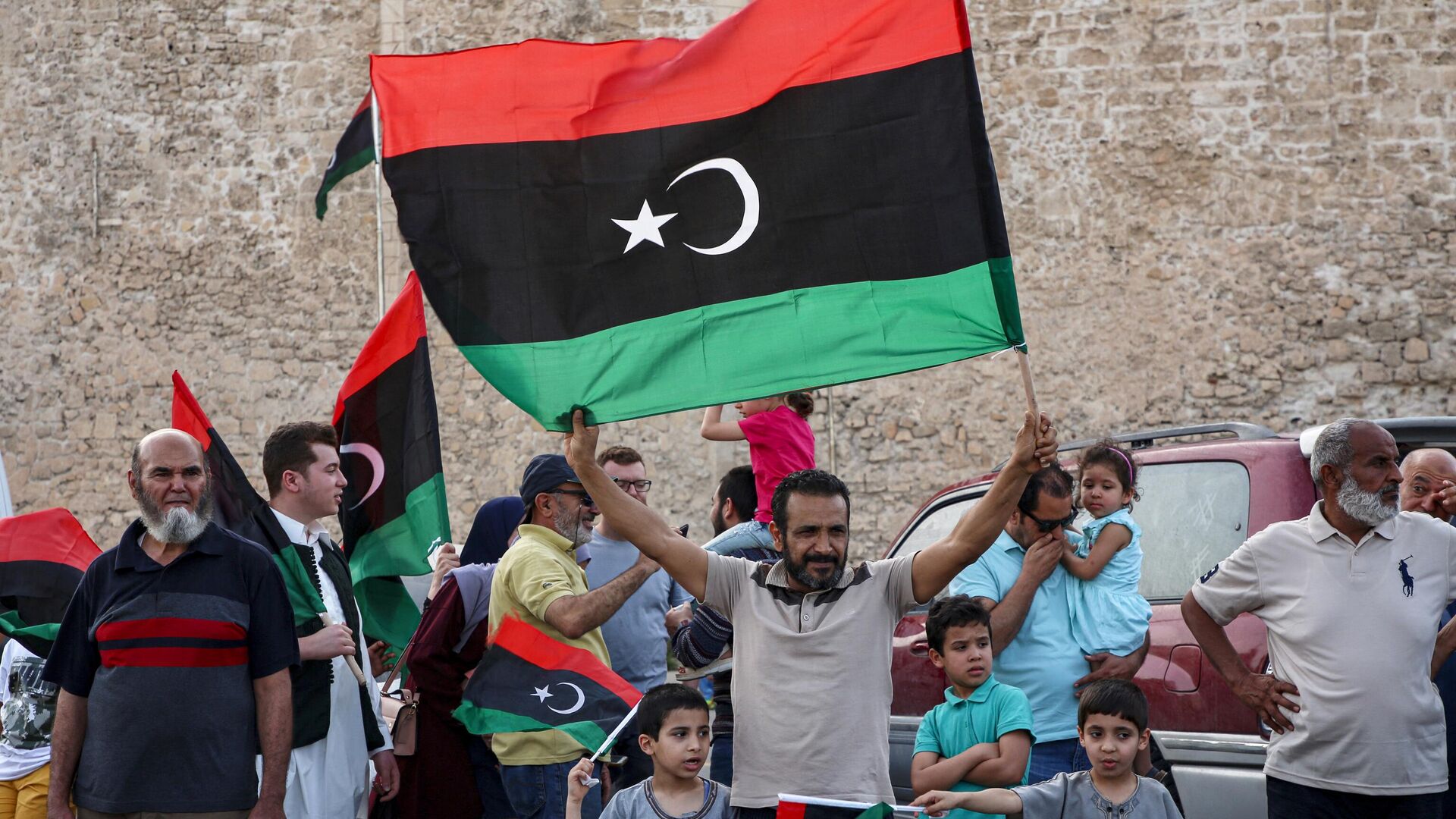https://en.sputniknews.africa/20231124/libyan-parliament-agrees-on-steps-on-forming-govt-holding-elections-with-un-speaker-states-1063762727.html
Libyan Parliament Agrees on Steps on Forming Gov’t, Holding Elections With UN, Speaker States
Libyan Parliament Agrees on Steps on Forming Gov’t, Holding Elections With UN, Speaker States
Sputnik Africa
Aguila Saleh, Speaker of House of Representatives of Libya, gave Sputnik insight on the next elections in the country, relations between the North African... 24.11.2023, Sputnik Africa
2023-11-24T09:48+0100
2023-11-24T09:48+0100
2023-11-24T09:48+0100
libya
russia
house of representatives
united nations (un)
elections
military base
north africa
diplomacy
https://cdn1.img.sputniknews.africa/img/07e7/0b/18/1063762496_0:0:3072:1728_1920x0_80_0_0_76f6e15fb4477e375182752094601052.jpg
The Libyan parliament has agreed on the next steps on forming a government and holding elections with the head of the United Nations Mission in Libya, Abdoulaye Bathily, Speaker of House of Representatives Aguila Saleh told Sputnik.The speaker also said that it is necessary to form a government before holding elections. The next government will have eight months to hold elections, Saleh added.Regarding Russia-Libya relations, Saleh said that they are at the highest level at the moment, as Moscow respects the will of Libyans and recognizes the legitimacy of the North African country’s government bodies.Moreover, Saleh touched upon the establishment of foreign military bases in Libya, telling Sputnik that he was against the bases being built on Libyan soil.He added that only the exchange of experience and military and technical cooperation with other countries are acceptable to Libya.
libya
russia
north africa
Sputnik Africa
feedback@sputniknews.com
+74956456601
MIA „Rossiya Segodnya“
2023
Sputnik Africa
feedback@sputniknews.com
+74956456601
MIA „Rossiya Segodnya“
News
en_EN
Sputnik Africa
feedback@sputniknews.com
+74956456601
MIA „Rossiya Segodnya“
Sputnik Africa
feedback@sputniknews.com
+74956456601
MIA „Rossiya Segodnya“
libya, russia, house of representatives, united nations (un), elections, military base, north africa, diplomacy
libya, russia, house of representatives, united nations (un), elections, military base, north africa, diplomacy
Libyan Parliament Agrees on Steps on Forming Gov’t, Holding Elections With UN, Speaker States
Aguila Saleh, Speaker of House of Representatives of Libya, gave Sputnik insight on the next elections in the country, relations between the North African state and Russia as well as creation of foreign military bases in Libya.
The Libyan parliament has agreed on the next steps on forming a government and holding elections with the head of the United Nations Mission in Libya, Abdoulaye Bathily, Speaker of House of Representatives Aguila Saleh told Sputnik.
"The recent meeting with Special Representative of the Secretary-General for Libya and Head of the United Nations Support Mission in Libya Abdoulaye Bathily was very positive, and we agreed on the next steps to form a government and hold elections. It is necessary to take practical measures in this direction by the end of December," Saleh said.
The speaker also said that it is necessary
to form a government before holding elections. The next government will have eight months to hold elections, Saleh added.
“The new government will be given a period of eight months. It will be small, and its specific tasks will be to complete the electoral process, thus eight months will be enough for holding elections,” Saleh said, adding that some circumstances might change the timetable for elections a little bit.
Regarding Russia-Libya relations, Saleh said that they are at the highest level at the moment, as Moscow respects the will of Libyans and recognizes the legitimacy of the North African country’s government bodies.
"Relations with Russia are very good. Russia has supported legitimacy in Libya from the very beginning, and therefore relations are at the highest level, like any relations with friendly countries that cooperate and respect the will of the Libyans," Saleh said.
Moreover, Saleh touched upon the establishment of foreign military bases in Libya, telling Sputnik that he was
against the bases being built on Libyan soil.
"Regarding foreign military bases, we reject [the establishment of] any military base in our country, we can defend our country ourselves," Saleh said in an interview.
He added that only the exchange of experience and military and
technical cooperation with other countries are acceptable to Libya.

